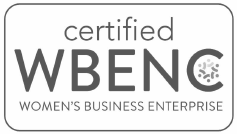The more conferences I attend, marketing blogs I read and PR/marketing practitioners I network with, the further engrained ‘Content is King’ becomes in my brain. As brand storytellers, we know that compelling content is the foundation of a strong news hook, the core of a thought-provoking blog post and a tool for building trust among prospective clients.
As an increasing number of companies implement inbound marketing campaigns – marketing that pulls in leads with compelling content, be it e-books, whitepapers and/or toolkits – businesses need to take a closer look at the information they are sharing online. It is time to evaluate whether or not blog posts, e-blasts, e-newsletters, vlogs and podcasts that are being used to market the brand are conveying trustworthiness to prospective clients.
How does one determine if their marketing materials are building trust? By honing in on what is compelling to prospective (and current) clients. One way to aggregate this data is to survey existing clients about what ultimately convinced them to do business with your company. It is also helpful to ask clients who signed on with your company after working with a competitor what motivated them to make the switch. All of this data can be used to refine your content marketing strategy, ensuring that you are sharing information that demonstrates expertise and helps to build trust among prospective clients.
Another way businesses can build trust among prospective clients and generate leads is to blog about timely topics that are relevant to their clients. This is especially true for companies that face frequent changes to industry regulations. Letting clients know that you are plugged in to industry changes that will impact them – be it new business tax filing requirements, IT security changes or new fundraising guidelines for nonprofits – builds trust and demonstrates expertise.
Giving free advice is another way to build trust. By developing whitepapers, e-books and toolkits containing helpful tips and valuable advice, prospective clients can get a taste of what your company offers before they buy. Think of it as the ‘free sample’ offer of the business-to-business marketplace. This approach even provides added confidence in the purchase when a prospect signs on the dotted line and becomes a client.
In a world where professionals are constantly exposed to marketing messages – be they direct or subliminal – it is important to take a step back and evaluate whether or not your content marketing is building trust among prospective clients and, ultimately, converting prospects into clients. Is your company’s content marketing building trust?


